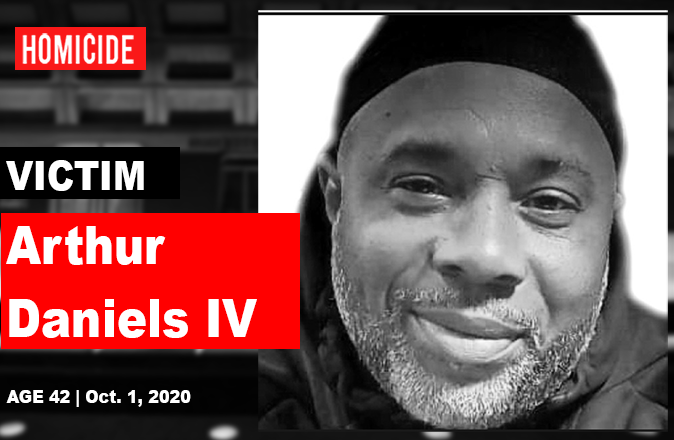
Thank you for reading D.C. Witness. Help us continue our mission into 2024.
Donate NowBy
Aubree Tomasetti [former]
- October 17, 2023
Daily Stories
|
Homicides
|
Shooting
|
Suspects
|
Victims
|
On Oct. 16 and 17, two expert witnesses testified in a motions hearing before DC Superior Court Judge Maribeth Raffinan about whether a murder suspect fully understood what he told police.
Deon Walters, 20, is charged with first-degree murder while armed, possession of a firearm during a crime of violence, and attempt to commit robbery while armed, among other charges, for his alleged involvement in the Oct. 1, 2020 death of 42-year-old Arthur Daniels IV. The incident occurred on the 6000 block of 8th Street, NW.
The expert testimonies were conducted to inform Judge Raffinan’s decision on the defense’s motion to suppress any statements Walters provided to Metropolitan Police Department (MPD) officers while waiving his Miranda rights against self-incrimination.
In the motion filed by Sylvia Smith, Walters’ defense attorney, she argued Walters did not waive his rights voluntarily, as the “circumstances surrounding his waiver were manipulative and coercive.”
Smith called a forensic clinical psychologist to testify about Walters’ interrogation.
In a video clip of the interrogation, Walters says, “My stomach hurts and I haven’t eaten all day”. The psychologist claimed these factors could have an impact on Walters’ understanding of the Miranda waiver and stated, “Your physical state will impact your thinking.”
In addition, she argued Walters’ low IQ, combined with his under developed prefrontal cortex, could lead to a lack of verbal comprehension, thus making it difficult to understand what the officers were telling him.
Smith focused on how fast Walters’ Miranda rights were read to him, arguing how difficult it would be for Walters to understand what was being said. She argued the conditions of the room being cold, and having to wait four hours before the interrogation, would also impact Walters’ ability to provide voluntary statements.
Meanwhile, prosecutors called a former psychology professor and executive director at the Center for Law, Brain, and Behavior to testify his findings on the interrogation of Walters.
From viewing the interrogation video, the doctor didn’t expect Walters to have trouble with oral fluency and comprehension, given he was in a familiar environment since he had previously undergone an interrogation.
In describing the interrogation, the doctor stated, “It was almost like a chess game, in terms of what do they know and what do I have to give up.”
Based on the video, the doctor acknowledged Walters appeared to be fully engaged in the conversation and did not look under duress.
During the cross-examination, Smith argued a person’s IQ can impact their understanding of their Miranda rights. The doctor agreed that youth between the ages of 15-to 17-with a low IQ would perform poorly given a Miranda warning.
There were no rulings at the hearing as a key detective is expected to testify Oct. 18, and the remaining motions will be decided at a later date.
They include the defense motions to dismiss the indictment due to withholding of excupatory evidence, as well as suppress evidence from the search of Walters’ girlfriend’s home.
Because of the pending motions, the trial is expected to be pushed back to November.
Parties are expected to reconvene Oct. 18 in order to continue the motions hearing.
Notifications are not yet available for this specific case. Please check back later for updates. Thank you.